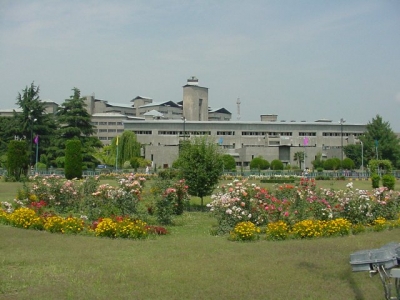
Sameer Yasir
Thomas PO’neill, the famous American law maker once famously remarked that, “All politics is local”. After almost thirty years, it still is, almost in every corner of the world. So is it in Kashmir. Recently two most recognizable faces of politics in Kashmir valley, whose credibility as being Indian even the far-right in India won’t question, have unnerved the Indian state. The PDP legislator Nizam-ud-Din Bhat and independent legislator Engineer Abdul Rashid have conquered the forbidden territory and mirrored the larger public opinion and showed us why Thomas Neill was right.
These two elected “representatives” have raised an important question on how the public perception sometimes forces individual who are never ready to accept certain realty changes their mindset for doing what by the definition of the state is forbidden. It has once again showed the state of affairs in the political realm in Kashmir and to be relevant you have to sometimes go against the towing line.
One has been asking for the clemency for Afzal Guru and another Nizam-ud-Din Bhat seeking deletion of section 3 of the Jammu and Kashmir constitution by virtue of which the state is incorporated as an integral part of the union of India.
On September 1, ErRashid moved a controversial resolution in the state Assembly seeking clemency for Afzal Guru, facing the gallows for his involvement in the Parliament attack.On August 4, 2005 the supreme court of India had upheld the death sentence on Guru adding that his “life should become extinct” to satisfy “the collective conscience of the society.”For the first time ‘Collective conscience’ was a piece of evidence.
On the other hand PDP legislator Nizam-ud-din Bhat has already been accused of introducing a constitutional amendment Bill with glimpses of “secessionist ideas”.His bill has questioned the accession of Jammu and Kashmir to India.Bhat had sought deletion of section 3 and section 5 of the state constitution, which would challenge the state’s accession with India.
He has also sought deletion of sub clause (b) of section 147 of the Jammu and Kashmir constitution which would ultimately make way for any legislator to move the bill seeking rethinking on section 3 and section 5 which declares J&K as an integral part of India.
New Delhi has almost perfected the art of keeping the elected representatives in the state in a state of enforced silence whatever they felt about issues. Sometimes, by deceiving them politically or when they feel outspokenness in individuals who would be having a position to influenceor match the public opinion,they have jailed them.
Engineer Rashid feels that the issue of AfzalGuru has a different “emotional appeal” with the people of Kashmir. And for that emotional appeal and for being relevant he somehow has understood the larger political reality embedded, that the people who have elected him think about the other version of story.
Every time elections are held in Kashmir the Indian political establishment takes pride in announcing the results and discussing the percentage. As the politicians come to terms with the brutal upright reality on the ground, there is something to contemplate on for people sitting in Delhi. Why these elected people are asking uncomfortable questions? Who they arethey and who do they represent? If considered the true representatives, which they are by the accordingto the State, then they are merely reflecting what the people who have elected them aspire.















